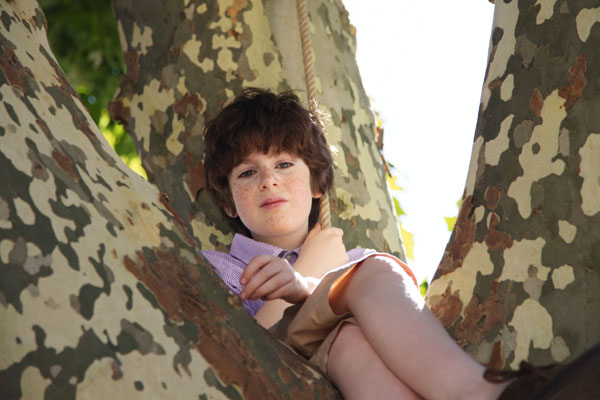Mother’s Milk is an adaptation of Edward St Aubyn’s novel of the same name and is about an English family who are about to lose their beloved holiday house in Provence. (Diddums, I’m minded to say, but only because I’ve never had a holiday house in Provence to lose, and am quite bitter about that.) Although I am generally a fan of this sort of in-action film — a family go away, there are tensions, they return home again — this is just too hopelessly faithful to the text. Huge chunks of it are spouted all over the shop.
It’s a tricky business, adapting literary fiction for the screen — it’s said the worst books make the best films and the best books make the worst — but this is rather like having someone read the book at you while you’re watching, which is tiresome, and doesn’t add up to anything credible cinematically. The first thing I would say to my film students, if I had any, is: ‘Don’t tell me, show me.’ I honestly don’t know why I’m not a professor of film somewhere, as I have so much to give, and would even offer specialist tuition on what I call ‘The Mournful Cello Film’, of which this is one.
So, as directed by Gerald Fox, it opens with a mournful cello, which is sometimes all you need to know about a film, but I will continue, as I am in the mood. The family in question? The family is Patrick (Jack Davenport), a forty-something lawyer who doesn’t seem to do much work, his wife, Mary (Annabel Mullion), and their two children, the older Robert (Thomas Underhill) and new-born Thomas (A Baby). The family head to Provence for the summer, where Patrick must deal with his dying mother (Margaret Tyzack, in her last role) — she’s had a severe stroke, and cannot communicate verbally — while trying to hang on to her estate, which she wishes to leave to a new-age charity headed by Seamus, an Irish guru-charlatan.
Seamus lives on-site, speaks a lot of mumbo-jumbo nonsense, affects not to hear Patrick’s poisonous remarks, and is overplayed by Adrian Dunbar as a caricature whereas, I think, sinister might have been more believable and interesting. We never know why Patrick’s mother wishes to disinherit him, or why he, in turn, despises her so. It feels as if the back story has been cauterised, which it has — Mother’s Milk is actually the sequel to a trilogy — and so the psychology of the characters is rather vague, to say the least. Patrick, quite suddenly, turns to drink and adultery and storms, shouts and stumbles while Mary appears to not even notice his increasingly erratic and disturbed behaviour. At some point Mary’s mother (Diana Quick) turns up, and she is also a selfish piece of work. If this is about how mother’s milk, once curdled, curdles down the generations, and fails to nourish, it’s not something we ever see, though. I’m just guessing, actually.
It is narrated by Tom Hollander, although, initially, I thought it was the Jack Davenport character, which made it confusing. Mr Hollander reads from the book and may say of Robert: ‘Sometimes he imagined he was the thing he was looking at. Sometimes he imagined he was in the space in between. The best was when he was just looking, without being anything in particular or anyone in particular and there he floated, in the looking, like the wind blowing with no cheeks to blow on and nowhere particular to go.’ Got it? Good. This is the sort of writing that belongs in a literary novel, where context and language carry you along, but it jars horribly here.
And the characters are all so unsympathetic. Patrick is as loathsome as he is self-loathing. Mary is so passive I wanted to put a firework up her bum. The other English families encountered are grotesques. And as for the performances, the only two that don’t phone it in are A Baby who, as a baby being a baby, is remarkably convincing, and Margaret Tyzack, who is compelling as a frustrated woman facing death. The ending? More mournful cellos, this being a Mournful Cello film, but don’t let that put you off. On the other hand, and as I would tell my students, if I had any: ‘Do.’






Comments